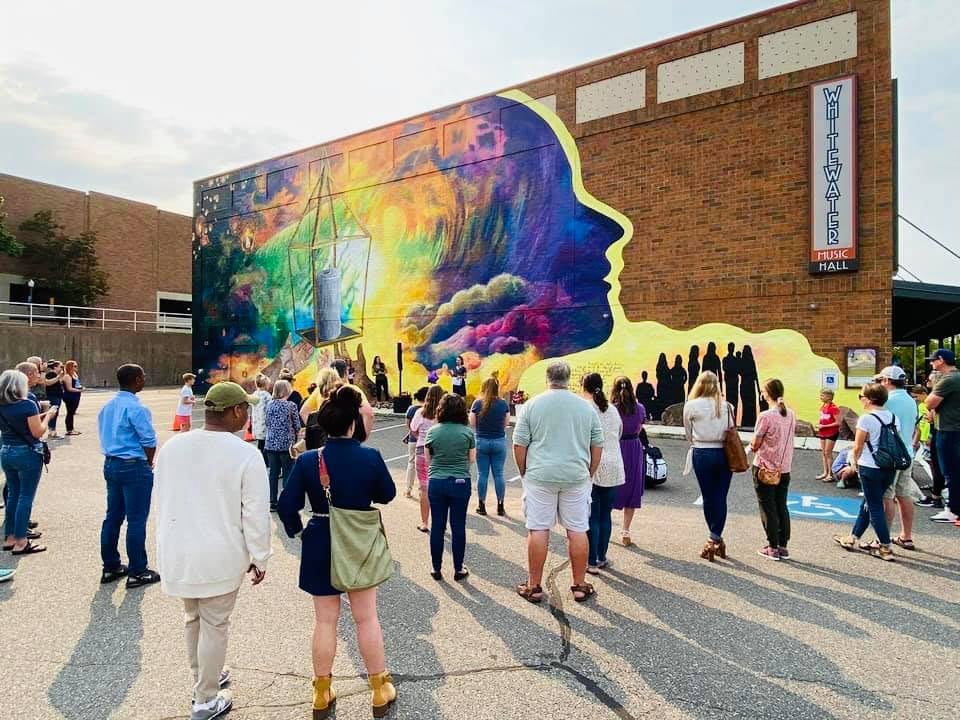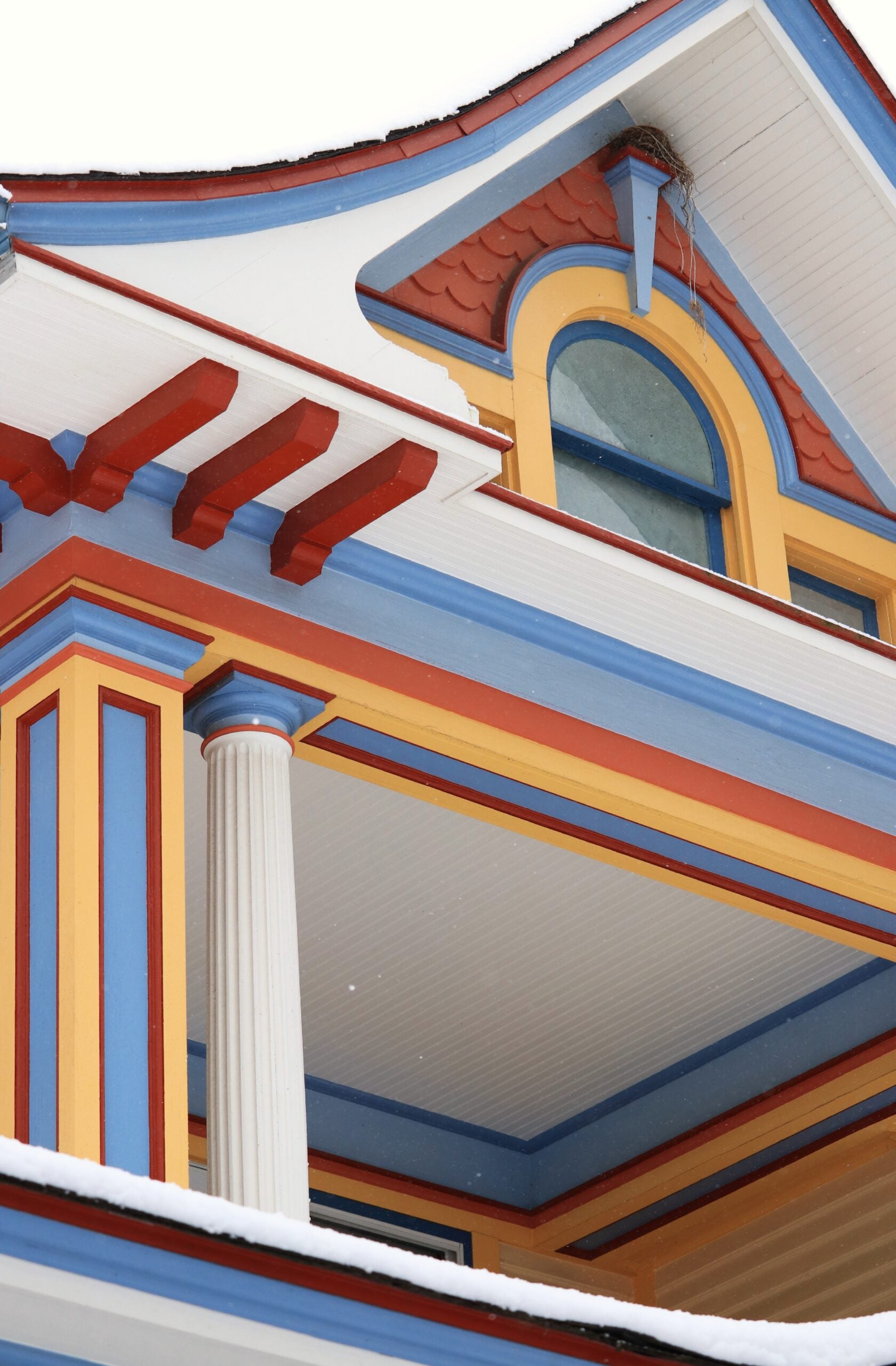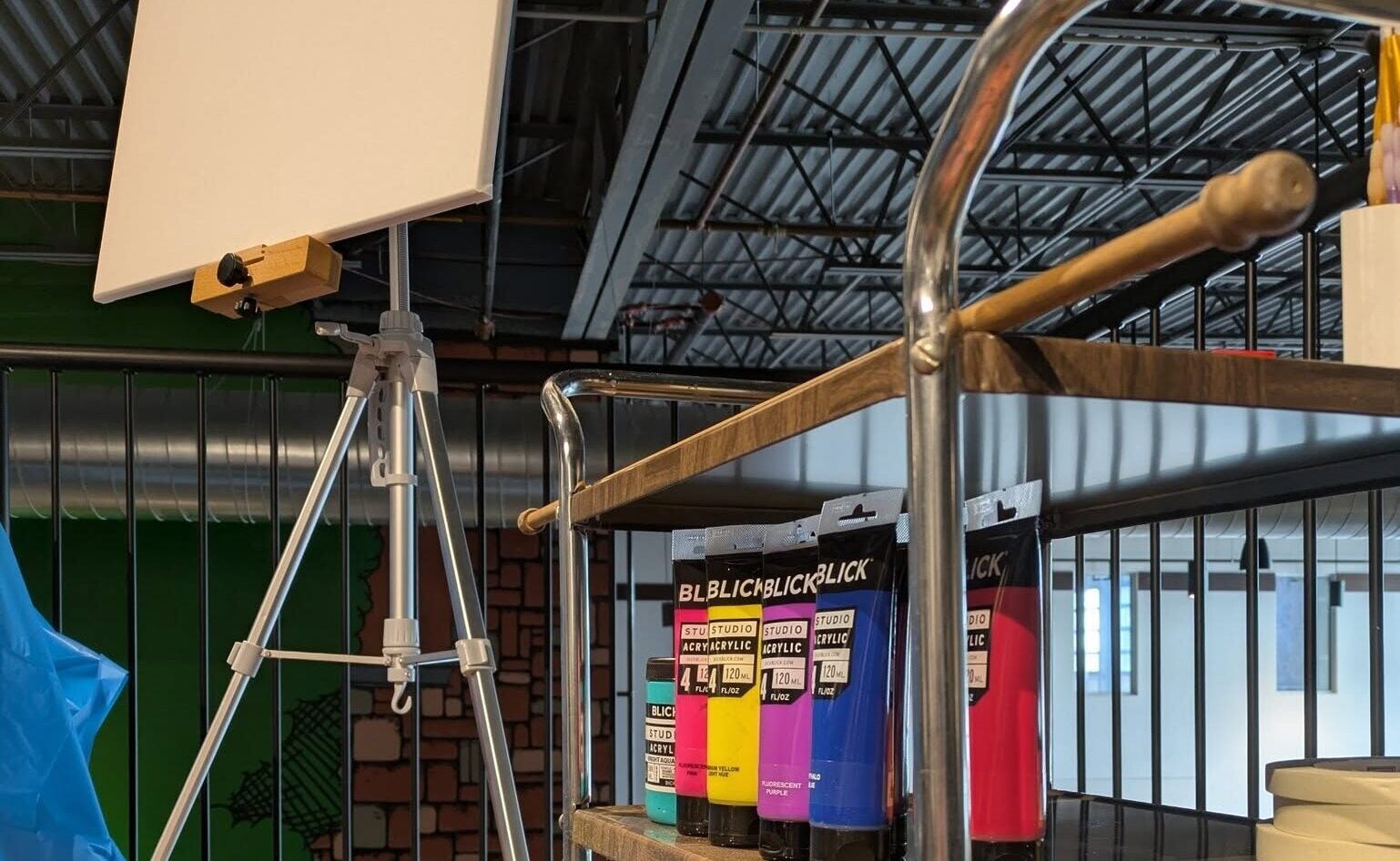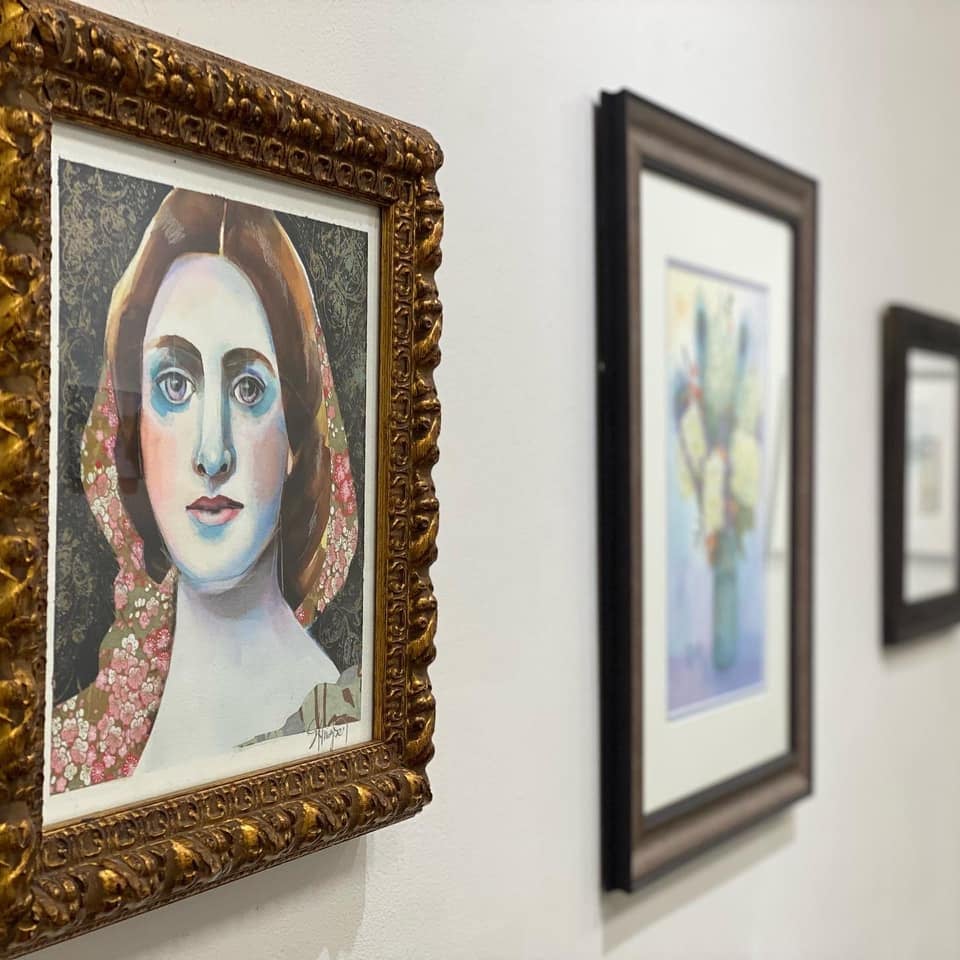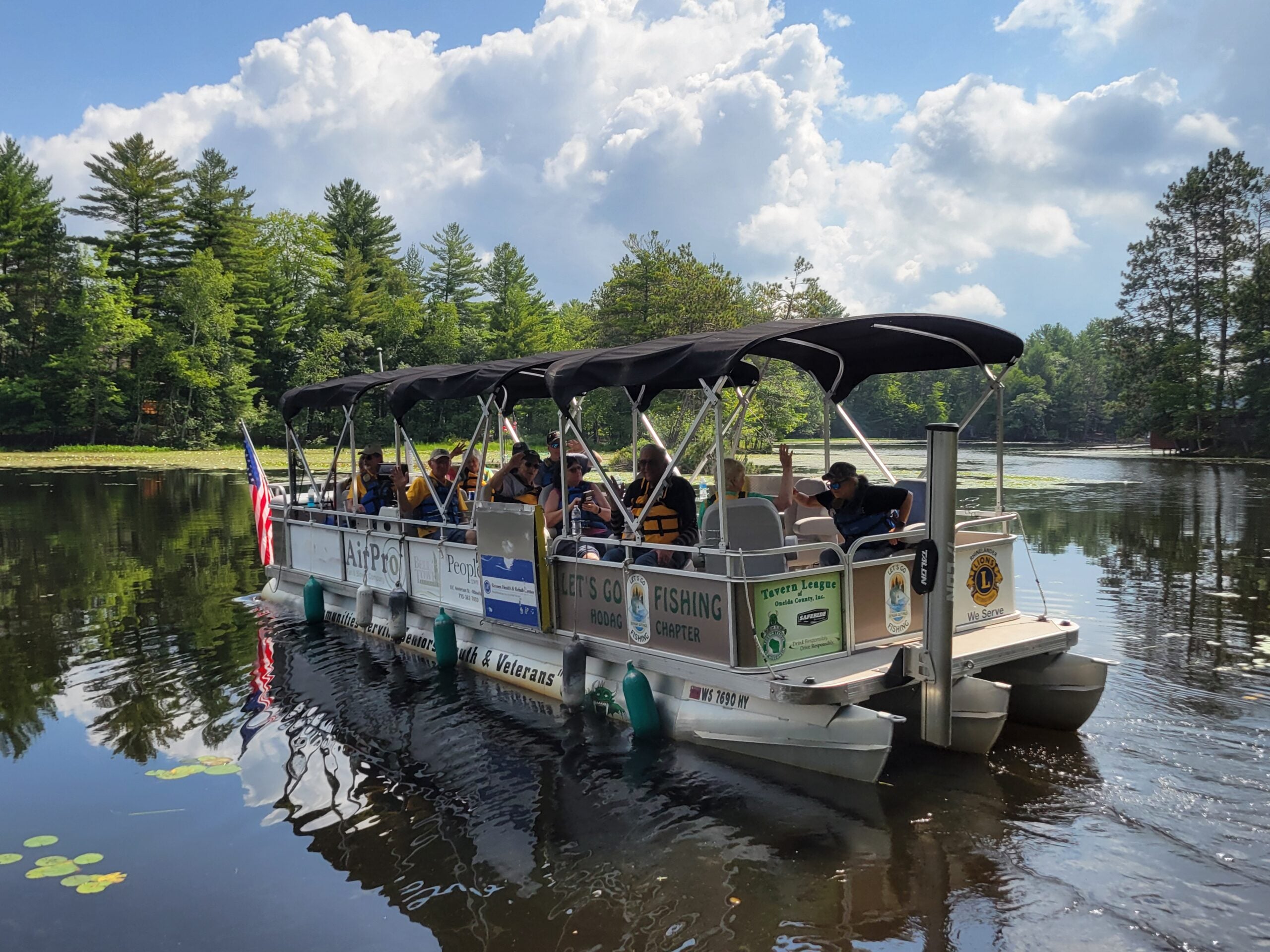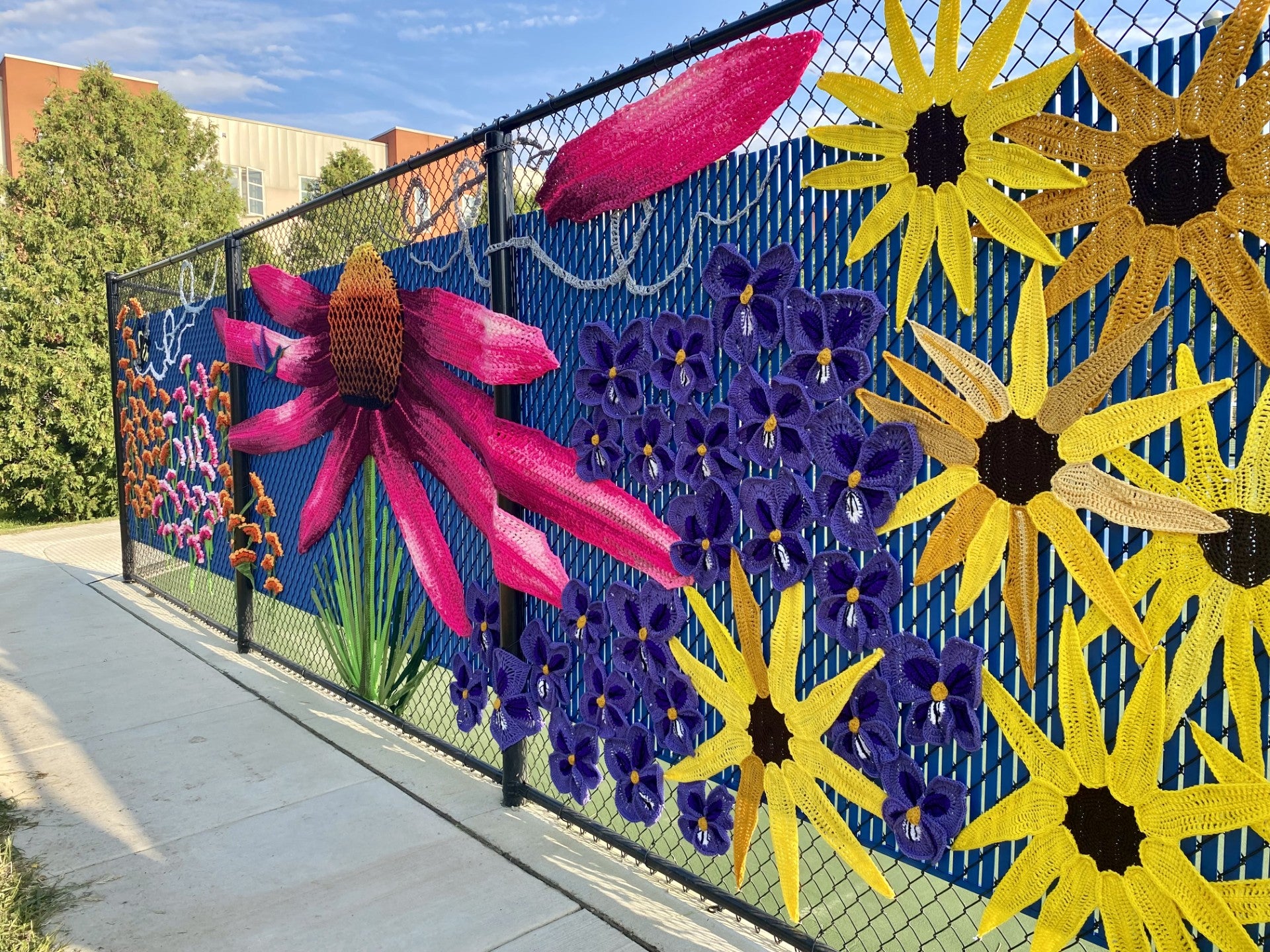A vibrant hot air balloon mural on the side of the Frontier building, community painting projects at Whitewater Music Hall and a growing downtown presence mark just a few of the visible signs of Rise Up Central Wisconsin’s impact since its launch in 2017.
But behind the color and community celebration is a deeper mission — one that fuses public art with health and wellness initiatives while offering inclusive access to creative outlets for people of all ages and abilities. The organization recently expanded into a dedicated downtown space, transforming a former storefront into a public makerspace stacked with donated supplies, where residents can drop in, create and connect — free of charge.
In a conversation with WPR’s Shereen Siewert on “Morning Edition,” Rise Up Central Wisconsin Program Coordinator Jacquelyn Tolksdorf said the expansion marks a new chapter for the organization, which began as a mural-based outreach effort focused on collaborative, community-centered art. Murals are designed by professional artists, then painted by the public in a paint-by-number format. That intentional accessibility has drawn everyone from young children to older adults to pick up a brush — regardless of artistic skill — and contribute to Wausau’s evolving visual landscape.
News with a little more humanity
WPR’s “Wisconsin Today” newsletter keeps you connected to the state you love without feeling overwhelmed. No paywall. No agenda. No corporate filter.
“If you can’t even paint a stick figure, it’s fine, because it’s all set up for you so that you can be part of this public art project,” Tolksdorf said.
Yet as the nonprofit continues to grow its footprint in the Wausau area, looming questions about federal arts funding threaten the financial stability of programs like Rise Up. With most grant funding tied to operational costs like salaries, nonprofits could be forced to make staff cuts or scale back programming — even as demand remains strong.
Still, Tolksdorf remains undeterred. She views this moment as one that calls for creativity, resilience and community solidarity.
“You have to pull through for the community because this is the time when more things overall will be lost,” she said.
Today, Rise Up’s leaders are focusing on what they can control: activating local partnerships, fostering joy through art and giving community members the tools — quite literally — to make something meaningful.
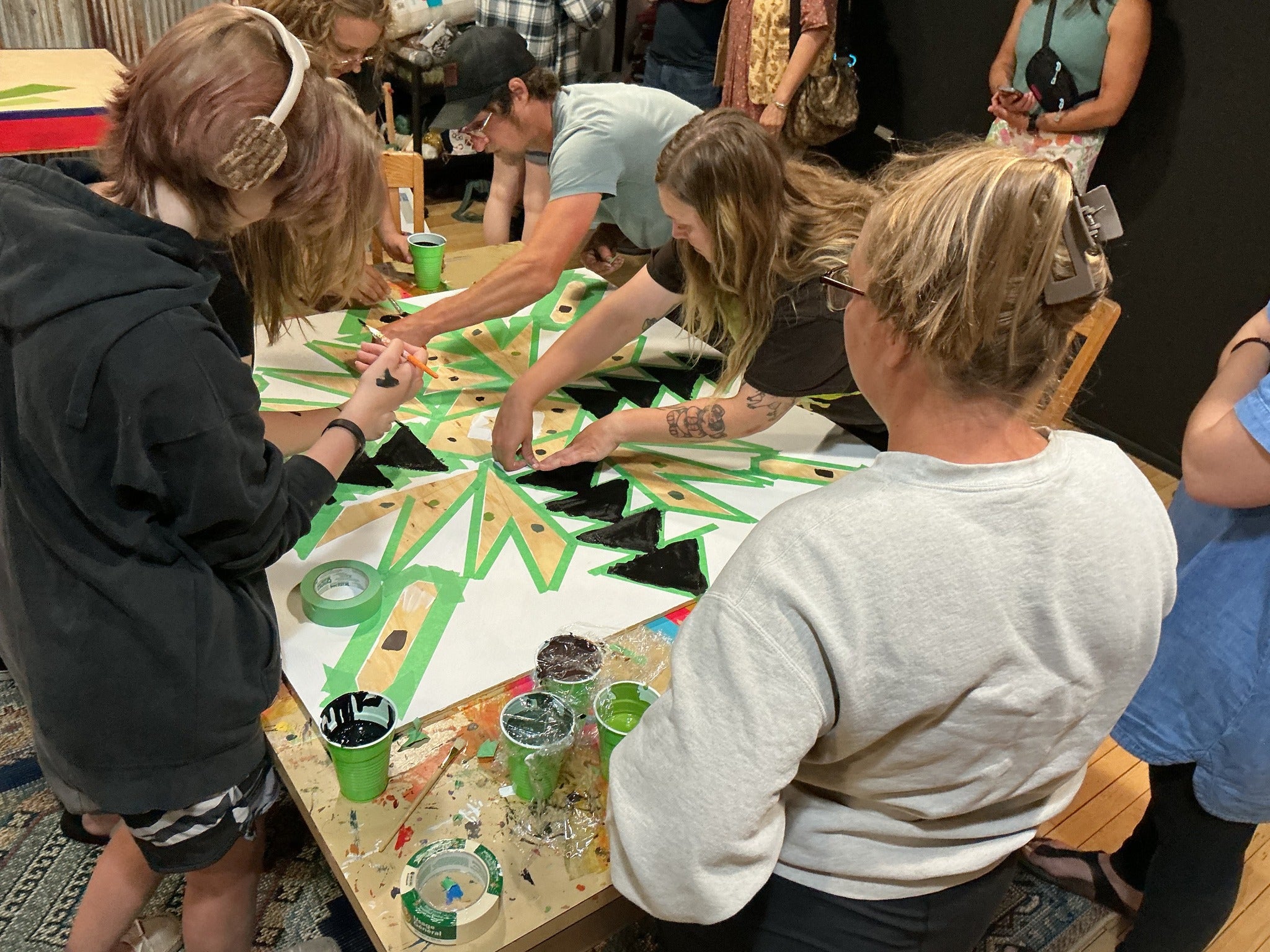
The following interview was edited for brevity and clarity.
Shereen Siewert: Give us an overview. What is Rise Up Central Wisconsin?
Jacquelyn Tolksdorf: Rise Up started in 2017. If you’ve been around downtown Wausau at Whitewater Music Hall or the WOW building [Wausau On Water Family Entertainment Center], or if you’ve passed the Frontier building and have seen that mural with a hot air balloon, those were all done by Rise Up throughout the years. We partner with other nonprofits to combine both health and wellness in the community into the public mural space. Murals are designed by an artist and then the community gets together to paint by number. That means anyone from age 8 to 80 can come by and paint.
SS: What is the new expanded space you have in downtown Wausau?
JT: Recently, the makerspace has been the second facet of the nonprofit’s vision. We’ve seen this flip that’s happening in the economy, and we know we need more accessible art pretty much everywhere, not just in Wausau. For Wausau specifically, we wanted to create a free space for people to come in and enjoy themselves.
The makerspace is stacked to the brim with donated art supplies and craft supplies, and it’s completely free to use. We’ll be announcing open studio hours soon when people can come and make stuff and make some friends at the same time. They’ll have complete access to a whole range of things from kids’ craft kits to professional art supplies.
SS: How do you prioritize which public art projects for Rise Up to pursue?
JT: We like projects with a big impact on the community. So, if you come to us and say, “I’m a restaurant owner, and I want a big giant cheeseburger with a smiley face on it,” that’s something we know isn’t going to impact the community in a big way. But guess what? We know a ton of artists who would love to paint that cheeseburger in your restaurant.
We have an artist collective that we connect with businesses who will pay them to do just that. Some muralists have a dream of earning a living wage off of their art, and this can help them achieve that dream. When we do plan a big mural, we do workshops with community members and activate nonprofits to do those workshops. That’s how the mural gets designed and comes together.
SS: There are a lot of uncertainties right now regarding federal funding and the arts. How are you navigating that?
JT: Yes. It’s been interesting to see. The aftermath of what happened is that all these foundations with funding through the National Endowment for the Arts or the National Endowment for the Humanities must pause what they fund. Then, smaller foundations within the state are uncertain as to what’s going to happen, so they can’t promise money to any nonprofit organization right now. Even though nothing has officially been cut yet, they have to pause the funding.
That means everyone kind of sits here for a while. It will ultimately go through the channels it needs to go through, but the process is looking like it could take up to 18 months, a time in which grants will be paused. All nonprofits are a little uneasy right now. We’re going to see a lot of challenges, and I think you’re going to notice, across the board, staff cuts for sure because grants tend to fund your operational costs like staff and salaries. Local donors, on the other hand, like to donate to projects.
This is a time when all nonprofits, not just those in the arts, will have to get creative in activating community members and really reaching out. But it’s also a scary time for the average community member who feels they can’t really donate more because they are struggling, as well. We will need to be creative in finding ways to activate our supporters and bring the community together.
SS: How are you maintaining your sense of optimism, even with these challenges?
JT: I think you just have to push forward. There will always be some kind of challenge. We’re hit really hard here but this is the time when you absolutely don’t quit your initiatives. You have to pull through for the community. You have to find ways, even if it means cutting budgets in certain areas. The main role of all nonprofits is to be there for the community.
If you have an idea about something in central Wisconsin you think we should talk about on “Morning Edition,” send it to us at central@wpr.org.

